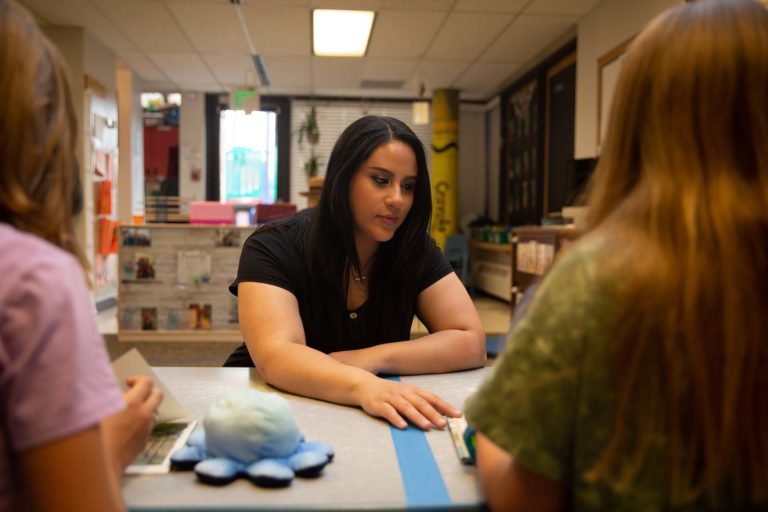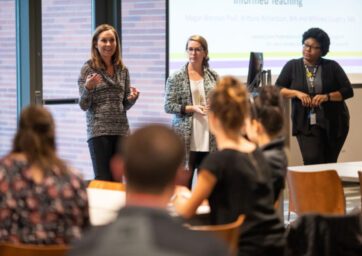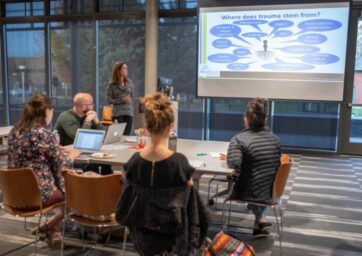Have Questions? We have answers.
Contact Us

Educators are among the most trusted adults to engage with children outside their families. So, for the next generation of teachers to be prepared for entering the workforce, they need access to tools that help them meet their needs and those of the children and families they serve – which sometimes includes addressing serious issues like trauma.
According to the Substance Abuse and Mental Health Services Administration, more than two-thirds of children reported experiencing at least one traumatic event by age 16. Trauma keeps students stuck in survival brain, hyper-focused on real or imagined threats and misperceiving ambiguous situations, like learning, as threatening and stressful.
“Every day, in our preschools and learning centers, we are seeing why early childhood teachers are referred to as first responders for children who have experienced trauma,” said Elizabeth Hinde, Ph.D., dean of the School of Education at Metropolitan State University of Denver.
In 2017, the MSU Denver School of Education began meeting the need for educators who can effectively work with students who have experienced trauma by launching a trauma-informed practice in educator preparation initiative, one of the first in the country to integrate TIP into all teacher preparation classes. TIP principles are techniques that center equity and the inclusion of all learners, especially students impacted by traumatic life events, and mitigate the experience of secondary trauma for teachers in the classroom.
An opportunity to scale both the implementation of TIP and equity in early childhood education settings and the placement of pre-service teachers in these settings came in 2021 when Constellation Philanthropy – a community of individual funders working together to make a difference in Colorado’s early childhood landscape – awarded the Early Childhood Education department a grant of $110,000, funded by gifts from nine families and foundations, ranging from $5,000 to $47,500.

Kathy Whitmore, Ph.D., professor and chair of the Department of Special Education, Early Childhood Education and Culturally and Linguistically Diverse Education, says the funding has strengthened the entire teacher education program. “We’ve been able to integrate trauma-informed curriculum at a high level and teach preservice teachers who will affect TIP change in their schools and districts.”
The expansion of TIP during the 2021-22 school year – made possible by the grant – proved transformative for everyone involved, far exceeding the proposed output. Highlights include preparing 31 TIP-Equity-focused graduates now entering the workforce, ensuring all 266 early childhood education students matriculated through TIP curriculum-embedded courses, developing a resource guide and providing 68 teachers at three early childhood education community settings with intensive training.

That training asks teachers to shift their mindset from “What’s wrong with you?” to “What happened to you?” when working with a struggling student. Andrea Walsh, Renaissance Montessori Academy and cooperating teacher for MSU Denver students in field course ECE 2950, says the training helped her reflect on how, as a teacher, she responds to a child who is acting out. “Now, I consider what might be happening at home or in class instead of getting irritated and upset with them.”
TIP training has far-reaching effects, with research revealing that schools that appropriately respond to students who have experienced trauma show gains in achievement, including improved test scores, on-time graduation rates, postsecondary enrollment and completion, and reduced incidences of disruptive behaviors and disciplinary referrals.
Associate Professor of Early Childhood Education Dorothy Shapland Rodriguez, Ed.D., says that with the help of the grant, MSU Denver is changing what quality childcare looks like in Colorado.
“We are improving outcomes for young children, so they are ready to make the most of the learning ahead of them.”

